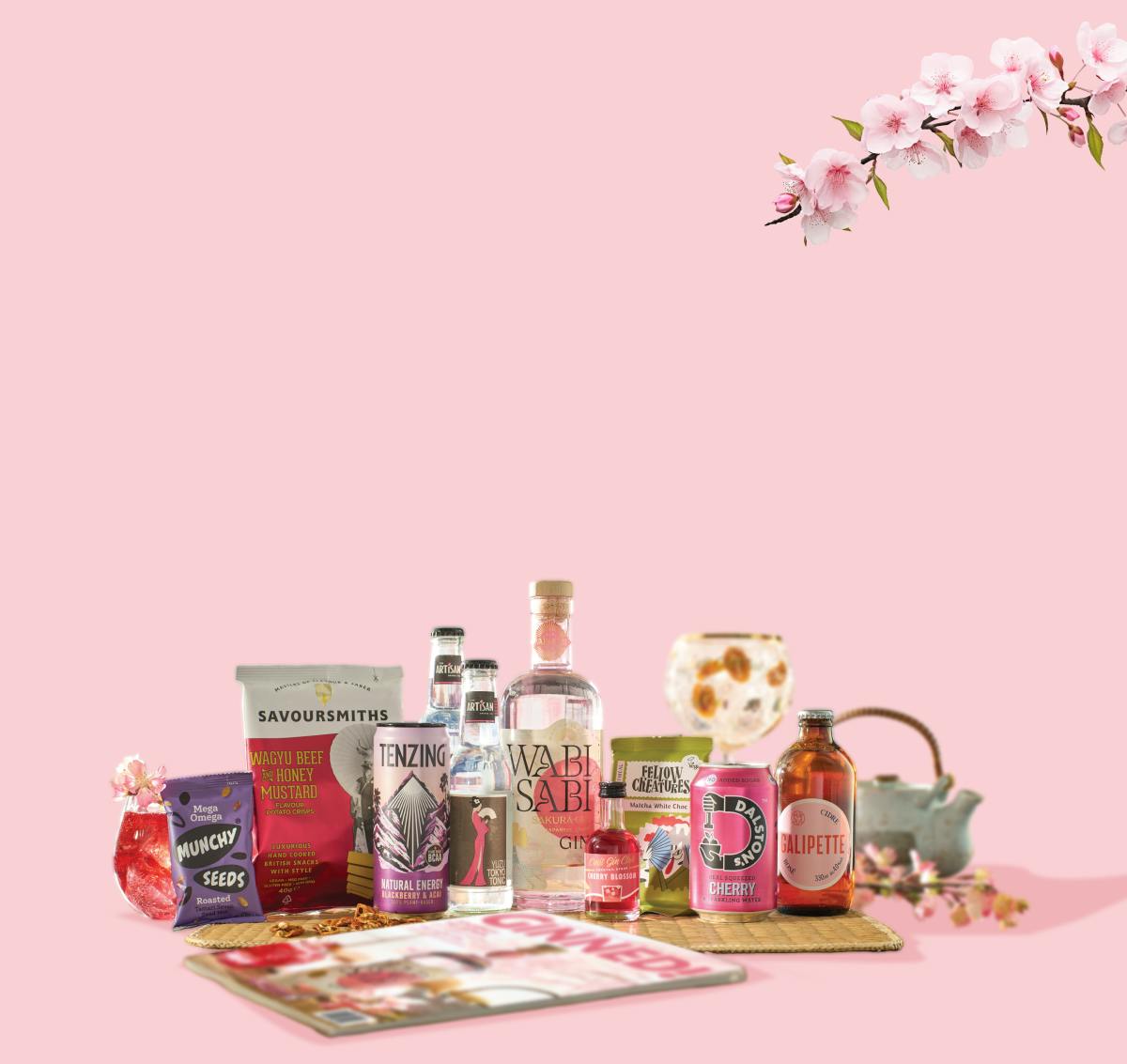Total flexibility, no commitment
A world of unique, crafted spirits
Easy, free and reliable delivery

GIN OF THE MONTH: MAKAR - GLASGOW'S GIN OF POETS
Below is an excerpt from GINNED! Magazine about Makar Glasgow Gin. Every month, Craft Gin Club members receive a bottle of amazing small-batch gins accompanied by GINNED! Magazine which is full of features about the gin, the distillery and loads of fascinating features.
Scotland is a land of whisky. From the time of The Bard Robert Burns’ tribute to the “strong heart’s blood” to contemporary correlations, whisky is to Scotland what sake is to Japan, tequila to Mexico and vodka to Russia, a national identity recognized the world over.
But Burns, writing only a few decades after a certain Craze that ravaged London, may have reconsidered his views if today he were alive to capture kilted culture in his calligraphy. Or at least he might broaden the scope of “Scotch Drink”: aside whisky, gin has grown to a strong second place in Scottish spirits with 70% of the UK’s gin production taking place in Scotland.
You won’t find much about juniper-based spirits amongst the works of Burns and his literary countrymen. But you will find their poetry steeped in the Craft Gin Club’s January Gin of the Month. For “Makar” is the Scots for “poet”, making the Glasgow Distillery Company’s first product, Makar Glasgow Gin, the Gin of Poets.
THE FIRST STANZA
The poem began in North London near Highgate Hill at Sacred Spirits, one of the UK craft movement’s leading companies. While visiting Ian Hart, Sacred’s Founder, Glasgow Distillery Company Founders Mike Hayward and Liam Hughes though why not use their deep knowledge of the drinks industry to launch their own gin? The two had always had a passion for gin, particularly Mike, whose fond memories of childhood include smelling the spirit while pouring his mother a drink. This is when he picked up the smell of juniper and citrus, smells that he has since identified strongly with. Today, with gin undergoing a renaissance as the influence of vodka wanes, Mike and Liam are happy to be working with such a versatile spirit. “There is so much you can do with gin,” said Mike. “It’s a very interesting spirit to work with.”
When the pair began to devise ideas for the type of gin they wished to create, they decided it would be more Robert Burns than Liz Lochhead, the current national Makar of Scotland - they sought to produce a traditional gin rather than something more avant-garde with which a number of their contemporaries are experimenting. “It was always a clear-cut decision for me that we were going to produce a juniper-led gin,” remembered Mike. “Historically, gin’s core is the juniper. Although others in the craft distilling movement are pulling away from the traditional, you can make excellent gin with juniper as the main botanical.”
Neither did they seek the intricacies of Shakespearean double-entendres and puns, but rather the straightforward message of a Robert Louis Stevenson novel. “The seven botanicals that complement our juniper are pretty traditional,” explained Mike. “We weren’t after anything too complex. We just added a little twist with the rosemary.” Indeed, 90% of Makar botanical composition is juniper, which the distillery imports from the Balkans. The 10% of the botanical mixture that remains consists of angelica root and coriander seeds also from the Balkans, liquorice and cassia bark from China, Indian black peppercorns, Spanish lemon peel and European rosemary.
THE POETRY OF PRODUCTION
Just as poets spill their initial thoughts on paper and subsequently spend days, months or years refining and shaping those thoughts into poetry, the Glasgow Distillery Company takes the time to refine its gin, distilling the spirit a full seven times, significantly more than the two distillations that most London Dry gins undergo. Head Distiller Jack Mayo, who joined in August on the day that the gin still arrived, conducted a number of experiments with the gin, ultimately deciding that the seven distillations produced the smooth and easy to drink spirit they sought. After its final distillation, the gin sits for two weeks as to allow the botanicals to finish their tasty decoration of the original neutral grain spirit. Mayo calls the end result “Distinctive but accessible.”
Each distillation step changes the cadence of the gin’s poetry, not the message at the heart of the gin. Mayo explained that the purification of the spirit that occurs with each distillation step brings out the different flavours of the gin at different times as opposed to increasing the emphasis on the botanicals. During the first distillations, citrusy notes are most present. As the distillation process continues, you get more herbal and woody notes and ultimately end up with more spicy notes. In the case of Makar, its black pepper and cassia bark tend to come out at the end.
If poems take their readers on a straight journey, reaching the style of gin a distiller plans to produce is an epic trek with lots of twists and turns. Botanicals don’t scale linearly. So when Jack started exploring different botanical mixtures and percentages in a small 10-litre still, he had to keep in mind that his final product would be produced in a receptacle 45 times as big. A number of factors such as the surface area of the still and the amount of heat emitted by stills of different sizes and shapes mean that the same ratios of botanicals in a small, experimental still will not produce the same spirit in a larger still. For this, like poetry, distillation is an art.
On those 10-litre stills, Jack has been experimenting with other types of gin and the team is exploring brand extensions. He has played with an Old Tom recipe, an Export Strength and would love to do a jenever-style gin which he thinks will happen organically when the neutral grain spirit for the distillery’s whisky, which includes rye as an ingredient, arrives.
LABELING THE LAUREATE OF LIBATIONS
Naming your gin, deciding on the message you would like the spirit to demonstrate, can prove just as difficult if not more difficult as distilling the gin as you want it. Mike and Liam scoured through the annals of Scottish lore, exploring more than 200 names for their juniper juice. When they whittled the vast selection down to a mere five, complete satisfaction continued to evade them. Within words related to the final five, they found the term “Makar”.
Liam researched the history of the word, discovering its meaning and its uses throughout history as well as the fact that it was unused in the drinks industry. Additionally, the term reflected the growing poetry scene in Glasgow and Edinburgh. A poetry fan himself, Liam quickly warmed to the idea of a “gin for poets”, especially because it was a Scots word for a Scottish gin.
The name for their first product has been such a hit in Scottish poetry circles that Mike and Liam have been touring poetry events with their gin. The link to the art of balladry grew even more serious as the current Scottish Makar - the equivalent of the Poet Laureate in the UK or US - Liz Lochhead agreed to compose a poem about the gin’s still, Annie.
For the moment, Mike and Liam are focused on sales in the Glasgow area, getting the Glaswegian community to buy into what is potentially one of the first gins made in the Scottish capital and a product of which they’ll be proud. However, Makar has already descended from Glasgow to the southern UK capital where the famous department store in Piccadilly, Fortnum and Mason, named Makar their Spirit of the Month in November, right after its late-October launch.
THE BARD’S BOTTLE
If there is poetry in Makar Glasgow pick-me-up, then verses exude through its vessel. A bottle of Makar not only elegantly underlines your martini but also elegantly decorates your home bar. A sleek, heptagonal bottle, whose seven sides represent the seven botanicals that compliment Makar juniper, portrays a confidence and class which Scottish poets could bless with ballads.
Next time you read The Bard Burns’ ode to the “guid auld Scotch drink”, you will know what Scottish poets are only just now discovering: that superb Scottish sprits do not come merely in hues “richly brown”. With Makar, poetry comes in a crystal clear, juniper-led craft gin to which even the most whisky-dedicated Scottish Makar can sing praises.







